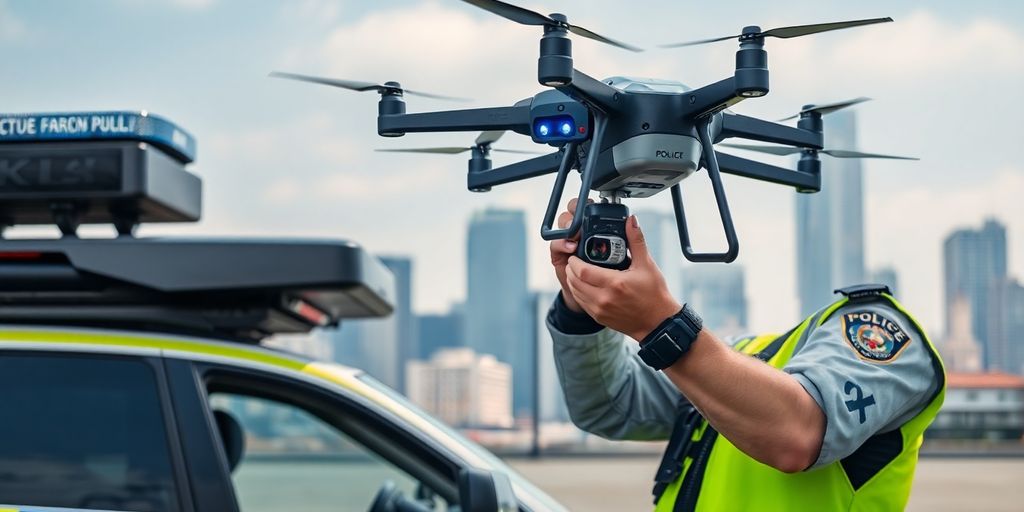In a significant move towards modernizing law enforcement, police departments across the United States are increasingly adopting innovative technologies. From AI-driven surveillance systems in schools to advanced drone capabilities, these enhancements aim to bolster public safety while raising important ethical questions about privacy and surveillance.
Key Takeaways
- Police departments are investing in advanced technologies, including drones and AI surveillance systems.
- The Milwaukee Police Department plans to spend $1.17 million on new technology, including drones and surveillance systems.
- Concerns have been raised by civil liberties organizations regarding the implications of increased surveillance.
- Jacksonville Police Department is implementing AI technology in schools to enhance safety and response times.
Milwaukee Police Department’s Technology Investments
The Milwaukee Police Department (MPD) has recently received approval for a $1.17 million technology budget for 2025, funded through federal asset forfeiture. This budget includes:
- $250,000 for 16 new drones and training.
- $250,000 for various technology systems, including a cell phone tracking program and video storage upgrades.
- $604,000 for equipment, including portable barriers and forensic cameras.
While some city council members support these advancements as a means to enhance public safety, others express concern about the potential for misuse of surveillance technology. The American Civil Liberties Union (ACLU) of Wisconsin has urged the city to halt spending on new surveillance technologies for at least two years, citing fears of indiscriminate data sharing and privacy violations.
Ethical Concerns and Community Voices
The ACLU’s concerns highlight a growing debate over the balance between public safety and individual privacy rights. They argue that the expansion of surveillance capabilities could lead to unintended consequences, including the misuse of data collected from citizens.
Alderwoman Milele A. Coggs emphasized the need for community involvement in decisions regarding technology funding, advocating for transparency and accountability in how these resources are utilized.
Jacksonville’s AI-Driven School Safety Initiatives
In Jacksonville, Alabama, the local police department is taking a proactive approach to school safety by integrating artificial intelligence into their surveillance systems. The new AI technology aims to:
- Detect weapons on school campuses, including firearms and other dangerous items.
- Provide real-time alerts to law enforcement and school officials, enhancing response times during potential threats.
Police Chief Marcus Wood stated that this initiative, supported by a $115,000 grant, will not only improve safety but also provide peace of mind to parents and students. The AI system will serve as an additional layer of security, complementing existing surveillance measures already in place at schools.
Conclusion
As police departments across the nation embrace new technologies, the conversation surrounding public safety and civil liberties continues to evolve. While advancements like AI surveillance and drone technology promise to enhance law enforcement capabilities, they also necessitate careful consideration of ethical implications and community engagement. The balance between safety and privacy will be crucial as these technologies become more integrated into everyday policing practices.
Sources
- Police Department Technology Purchases Raise Concerns, Urban Milwaukee.
- Jacksonville Police enhancing school safety using artificial intelligence technology, WBRC.

Founder Dinis Guarda
IntelligentHQ Your New Business Network.
IntelligentHQ is a Business network and an expert source for finance, capital markets and intelligence for thousands of global business professionals, startups, and companies.
We exist at the point of intersection between technology, social media, finance and innovation.
IntelligentHQ leverages innovation and scale of social digital technology, analytics, news, and distribution to create an unparalleled, full digital medium and social business networks spectrum.
IntelligentHQ is working hard, to become a trusted, and indispensable source of business news and analytics, within financial services and its associated supply chains and ecosystems











